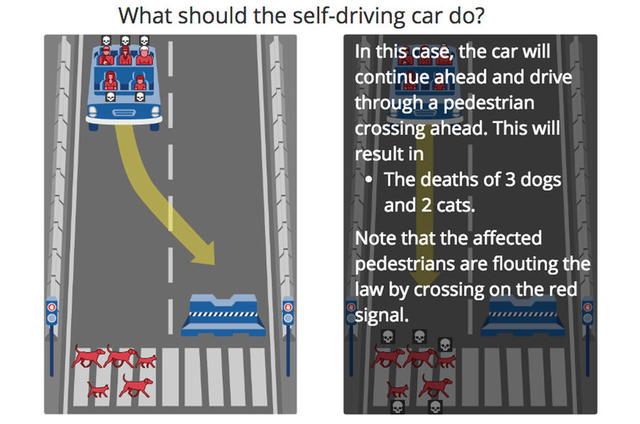Shop Insurance Canada: Autonomous Vehicles and Humans May Never Mix Well
September 14, 2016 (PRLEAP.COM) Business News
September 14, 2016 - Autonomous vehicles are expected to make car travel safer, reduce accidents, lower insurance premiums, and save lives. However, while full self-driving vehicles can deliver these utopic predictions, the interim of semi-autonomy could present dangerous times for drivers.While vehicles only offer semi-autonomous control, the human driver still has an element of decision making. This can create a quasi-control state where the driver is unsure if he/she should make a decision in situations of peril, or whether the vehicle will take control. Equally, the autonomous vehicle will be waiting to be engaged by the driver.
This presents serious danger. Experts now say that there is no guarantee that the human will know when to step in or will even want to. Current autonomous vehicles and the ones coming in the next five years at least rely on the assumption that the driver will act in the correct manner in certain situations. It is a false assumption.
Interestingly this means autonomous vehicles could actually be dangerous, at least until the technology develops to a level where the human has no choice or control. Google, for example, is already pushing for its first vehicles to come without steering wheels, the company is clearly worried about the interference of humans.
Autonomous technology is already used in other modes of transport successfully, in aviation with the use of autopilot for example. It is widely accepted that the machine is better at controlling the plane than the occupant and indeed the majority of error-caused accidents are at the hands of humans, and not autopilot.
A Need for the Human Element
The problem for autonomous cars in the current guise is that they still need the human as a backup. This presents an issue because extensive research over decades has shown that the human mind wanders when it does not have something to do. For example, if the car is doing everything, the human is more likely to be playing Pokémon Go than paying attention for any issues that may need intervention.
A Tesla automated vehicle was recently involved in an accident that claimed the life of the driver. The autonomous tech was engaged and it is thought both machine and human were ultimately at fault for the tragic events.
Tesla's technology is among the most advanced. It can parallel park, find parking spaces, change lanes, change speed, brake, and turn while signaling. Neither the car nor passenger Joshua Brown saw a truck pull out in front of them and the brakes were not applied. It is believed the white truck against a bright sky threw the technology, but what about Brown, why wasn't he ready?
It is a conundrum the autonomous industry is now tackling as it looks to avoid similar accidents. Audi is launching a 2018 A7 with driverless tech. The German automaker says it is the most advanced example of the technology so far. To ensure situations like Brown's death do not happen again, the company is adding a monitoring system that will watch a drivers head and eye movements. If the sensors think the driver is not concentrating then the car will stop.
Tesla says users must have their hands on the wheel at all times otherwise the car will slow. Even so, Brown seems to have been distracted enough to have not seen the truck move in front of him. There is also a more practical argument to be made. If a driver needs to stay alert or have their hands on the wheel at all times, what is the point of autonomous technology at all.
Will these vehicles be consumer products or are they only being made to improve safety? The latter would be a noble goal, and if accident and death rates tumble, staying alert while the car does all the work would be a worthwhile compromise.
However, there is no doubt that manufacturers will be marketing their vehicles as consumer products, complete with entertainment systems. In other words, carmakers will be presenting ways for drivers to be distracted, with even talk of one day being able to do work on the way to work. Also, if there is no steering wheel like Google wants, what can a driver do in some dangerous circumstance?
The nearer we get to the launch of autonomous vehicles, the more questions seem to be unanswered.
About Shop Insurance Canada
Shop Insurance Canada is a Toronto based company that specializes in delivering the best auto insurance products to customers around Ontario and Canada. The online insurance quoting tool uses an engine that is easy to use and accurate enough to deliver the best auto insurance quotes from over 25 of Canada's leading providers. Shop Insurance Canada also offers expert advice on the auto insurance industry, as well as guides and news to help customers find the best deal possible.
Shop Insurance Canada
1003-60 Bathrust St.
Toronto, Ontario
M5V 2P4
Canada
416-913-0151
